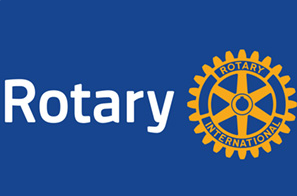From: COMMS (NHS SURREY HEARTLANDS CCG) <syheartlandsccg.comms@nhs.net>
Sent: 10 March 2021 17:34
Subject: Surrey Heartlands Covid-19 Vaccination Programme Partner Update
10th March 2021
| Partner update 10th March 2021 | ||
| Welcome to our regular Covid-19 vaccination update. This short update will be published and circulated every Monday, Wednesday and Friday, in addition to our weekly vaccination newsletter. If you wish to subscribe/unsubscribe please email us at: syheartlandsccg.comms@nhs.net | ||
| Large-scale vaccination service to move from Epsom Downs Racecourse to Sandown Park From 17th May, our large vaccination service at Epsom Downs Racecourse – which people book via the National Booking system – will be transferring to Sandown Park Racecourse. As the country moves out of lockdown restrictions and plans to phase the return of horse racing events at Epsom Downs emerge, we need to relocate the vaccination centre from Epsom Downs to Sandown Park. Vaccination appointments for those eligible will continue at Epsom Racecourse until 15th May. From 17th May all appointments will take place at Sandown Park. Once invited people should continue to book their appointment for the vaccination centre though the National Booking system. We expect the move to Sandown Park to be made without disruption and are grateful to the Jockey Club for their commitment to continue supporting the vaccination programme in Surrey. Local people booking appointments now may receive their first dose at Epsom Racecourse and second dose at Sandown Park. Details on appointment bookings can be found on our FAQS. The site at Epsom also accommodates a Local Vaccination Service which is managed by local GPs. This service will also re-locate within the same timeframe and it is expected to remain within the local Epsom area. National Booking system trialling text invitations for Covid-19 jab Yesterday NHS England announced that the NHS national team will now start texting people inviting them to book their Covid-19 jab, making it quicker and easier to get an appointment. Previously all invitations via the National Booking system were made via letter. Nationally, almost 400,000 people aged 55 and over and 40,000 unpaid carers who are now eligible for the vaccination will receive an invitation by text as well as by letter. Similar to text messages which are already sent out by many local GP-led vaccination services, the message will include a web link for those eligible to click and reserve an appointment at the large-scale vaccination centres of pharmacies. The service will also send text reminders 2-3 weeks after the original alert to encourage people to make their appointment if they haven’t already. Texts will arrive in advance of the standard letter, meaning if the trial is successful the solution could enable the NHS to react faster to changing vaccine supplies and fill appointments quickly. This will help increase uptake of the jab, particularly as the NHS moves on to younger age groups. Frequently asked questions (FAQs) | ||
| You can find a comprehensive set of FAQs on the local programme on our website here. I have had my first vaccination. Do I still have to wear a face covering when shopping and can I hug my grandchildren? Having the first vaccination jab does not guarantee we cannot catch coronavirus but it should reduce how seriously we are affected by the virus if we catch it. This means that even after you have had your first vaccination you could still catch and spread coronavirus to your family and the people you come into contact with. It is therefore really important that you continue to follow current guidance to stay at home as much as possible, continue with social distancing, wear a face covering and regularly wash your hands. | ||
| Useful links · FAQs · NHS.UK Covid-19 vaccine · GOV.UK Covid-19 vaccination programme · Data release · Information on priority groups | ||
| ———————————————————————————————————————————— Surrey Heartlands Communications Team, 10th March 2021 | ||



